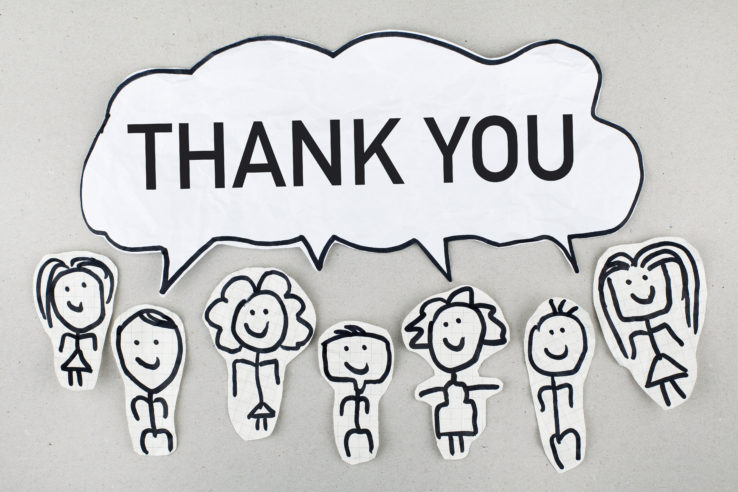Teaching Gratitude to Young Children
When I was in college I worked in a wonderful little on-campus infant/toddler child care center. So many years later, I still recall this incident…
A dad walked into the school and was just turning the doorknob on the half-door of the classroom when he observed his 2-year old daughter hit another child. His reaction was to say, “Caroline!! Tell her you’re sorry!” The lead teacher quickly responded to the children, using appropriate words with both of them. She then came to the door and said to dad, “Caroline might not feel sorry, so we don’t make her say that. Instead, we ask her to help t
he other child feel better. See how she’s comforting her now? We don’t want her to just say the words, we want to teach compassion.”
Honestly, I don’t know if dad bought into the idea, but I sure did, as a student observing the interaction!
More than Just Words
Saying thank you is a similar thing. We teach children to say thank-you, but how do you instill an authentic sense of gratitude? Gratitude hinges on the developmental task of taking another’s perspective, which begins around 2-3 years but isn’t complete until much later, so it’s a work in progress in young children.
We teach children to be thankful by modeling gratitude. Here a few examples:
- Saying thank you when they give you something or help you
- Pointing out gratitude in the books you read
- Talking about how you feel when someone says thanks to you
Here’s an Idea
Spend time looking at all the people who work at your school to help children; those that prepare snacks and lunch, the bus drivers, the person who mows the playground, the person who cleans the classroom every day and the person who fixes broken toys.
Talk about what each of these people do. Ask, “can you think of a way that we could let them know how much we appreciate what they do for our class?”
Then follow-up! Write notes, make gifts, go on a “field trip” to the kitchen and sing a song to the cook, leave a treat for the custodial staff. All of these ideas include ways to support literacy, social-emotional development as well as fine motor development – so you’re teaching lots of other skills too!
DOWNLOAD: 8 ways to make the world a better place for children!
Our printable this month includes words of encouragement to teachers of young children from Gera Jacobs, former president of the National Association for the Education of Young Children, professor and powerful advocate and leader in early childhood education. These poignant words came in her last days as she lay in hospice, suffering from cancer. Read them, print them, read them every day. Be encouraged and be thankful.


